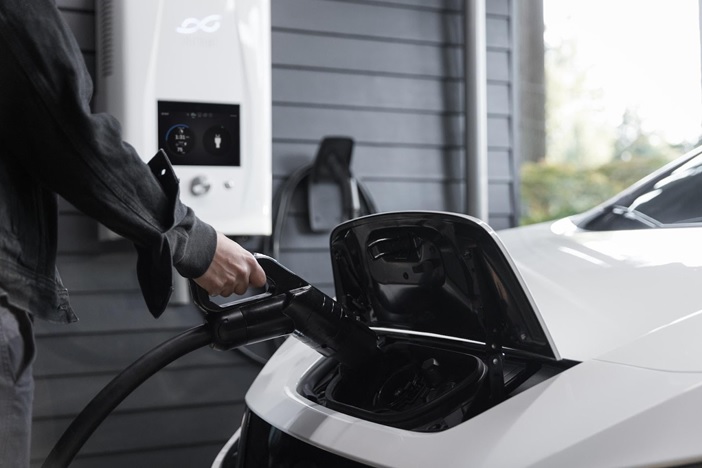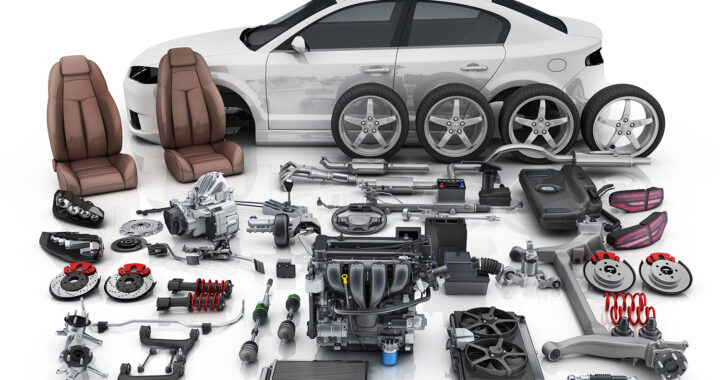Veritas Global Protection: Electric Car Vehicle Protection

The car industry’s future is electric. Momentum is building for this radical change thanks to better technologies, environmental pressures, and fiscal incentives.
Veritas Global Protection knows the electric vehicle market and its potential growth; they have developed new electric vehicle protection plans.
More people are buying electric vehicles than ever before. Before you join them, you need to consider the pros and cons. Think how an electric car might fit into your lifestyle, what problems you may encounter, and what benefits await if you take the risk.
Whatever you choose, Veritas Global Protection will be there to support you.
Vehicle Costs
Before you purchase, you need to be aware of the cost of these electric vehicles. See which ones are within your budget. Remember that these are still the early days of the electric vehicles revolution.
Research and development are expensive. Materials are hard to find. Production volume is also relatively low compared to traditional gas-powered cars, bumping up the cost of each unit.
Prices are sure to fall over time as production ramps up. Until then, buyers can look for government incentives to reduce purchase costs.
Federal tax credits, state tax credits, and seller discounts matter, and tax deductions are involved with buying an electric vehicle. Check out which models qualify for these deals before making a decision. Vehicle size and battery capacity determine the amount you can slash from the stated price.
Fuel Economy

The surging cost of fuel is making travel more expensive for motorists. Pump prices are forcing them to adapt, such as driving less, taking public transport, and buying electric cars.
Hybrid vehicles can switch between power sources based on current costs. If fuel is expensive, they can rely on the battery. Once prices go down, they can fill up their tanks.
All-electric vehicles also have better fuel economy than traditional cars. According to studies, a light electric vehicle can travel (an equivalent of) 130 miles per gallon of gasoline. They can also drive as far as 100 miles using only 25 to 40 kWh.
These numbers show that the operating cost for electric vehicles can make up for the higher cost of acquisition. Remember that fuel economy depends on load and duty cycle, particularly for medium to heavy electric vehicles.
Available Infrastructure
Older cars rely on a network of gas stations around the country. They are never too far for as long as you are mindful of your consumption.
With electric vehicles, you need to plug in to charge the battery. You can do this in your home or your workplace. You can also go to a dedicated charging station to enjoy faster charging.
If you have a hybrid car, you can fill up your tank with gas if no charging stations are available, and vice versa.
More charging stations are sprouting in cities, but these are sorely lacking in rural areas. If you mainly drive to and from your office, this should not be much of a problem.
If you like to head out to the beach or the mountains on weekends, you may run into issues. A versatile hybrid car may be more suitable than an all-electric model for this lifestyle. Fortunately, the infrastructure keeps improving, so this is becoming less of a concern.
Gas Emissions
Air pollution is detrimental to health. City dwellers are particularly vulnerable because of their proximity to millions of gas-powered vehicles.
All-electric vehicles do not burn fossil fuels. They have zero tailpipe emissions, so they do not pollute their cities. Hybrid cars also have zero emissions in electric mode.
Some might argue that an electric vehicle is still responsible for emissions during its manufacturing. They might even add emissions from the power plant that supplied it with electricity.
These vary per region because utility companies generate electricity through different means (coal, wind, fuel, nuclear power, hydrothermal power). Check your local utilities for more information.
Battery Longevity
Rechargeable electric vehicle batteries can last for years. You can read the warranties. Some manufacturers cover the battery for up to 8 years.
Researchers say a 12 to 15-year lifespan is achievable in moderate climates. Extreme cold and heat can cut this to about 8 to 12 years.
You will need to replace the battery after it wears out. The price is substantial, so you might want to look into extended warranty programs and their associated fees to reduce stress.
However, battery studies show that you may not need to worry about it much. Expect better and cheaper power storage solutions a decade from now.
No matter which vehicle you choose to get, whether it’s gas-powered, electric, or hybrid, Veritas Global Protection has a vehicle protection plan for every need.
A Note on Energy Security
Individual consumers usually focus on the five factors mentioned above. After all, these have the most direct impact on their daily lives.
However, we should also consider the effects of electric cars on energy security. The U.S. transportation sector is responsible for 30% of the total energy requirements in the country.
About 70% of petroleum consumption is due to vehicles. More electric cars mean less dependence on oil imports. It improves the diversification of energy needs, shielding the U.S. from supply shocks.
Veritas Global Protection
Veritas is a leader in vehicle protection plans. It is one of the first companies to recognize the growing interest in electric cars.
The response is a new Veritas Global Protection electric program tailored for electric vehicles. It goes beyond what most of its competitors are offering at the moment. Consider this program if you want reliable coverage for your electric car.
You can choose from four unique plans offered by Veritas Global Protection. Electric: Premier and Premier Plus can cover vehicles up to 5 years old and 50,000 miles on the odometer.
Almost every mechanical component is in the contract. Read the exclusions section to eliminate surprises.
Meanwhile, the Electric: Preferred Plan can cover vehicles up to 7 years old and 75,000 miles. It includes the drivetrain, brakes, steering system, and suspension system.
You can upgrade to the Electric: Drivetrain Deluxe to cover models up to 10 years old and 100,000 miles.
A similar plan, Electric: Drivetrain, extends mileage to 125,000 and covers essential drivetrain components.
Learn more by downloading the brochures at the official website of Veritas Global Protection. You can also give them a call for guidance and information.


 “Dominator’s Low Rider S Handlebar Kits: Elevate Your Ride with Precision and Style”
“Dominator’s Low Rider S Handlebar Kits: Elevate Your Ride with Precision and Style”  Air Clutches – The Hidden Heroes Of Industrial Transmissions
Air Clutches – The Hidden Heroes Of Industrial Transmissions  Top 10 Tips for Buying a Used Car
Top 10 Tips for Buying a Used Car  Installing VMAX Front Brake Pads
Installing VMAX Front Brake Pads  How To Choose Second-Hand Bikes From The Used Bike Showroom Near Me
How To Choose Second-Hand Bikes From The Used Bike Showroom Near Me  How to Handle a Car Accident with Law: What You Need to Know
How to Handle a Car Accident with Law: What You Need to Know  Step By Step Guide To Buying The Best Auto Parts
Step By Step Guide To Buying The Best Auto Parts